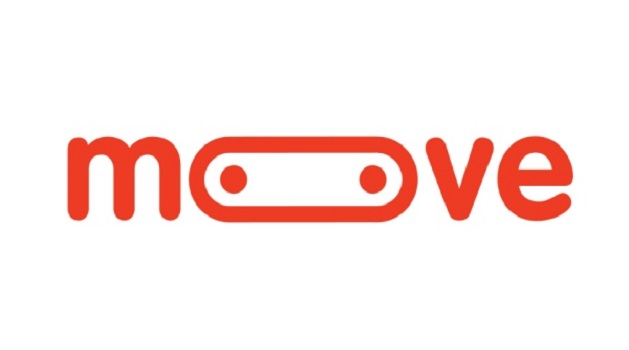General News
5 Fun Things to Do at the Murtala Muhammed International Airport

You might have had one of those days when you stack your luggage in the trunk of the car ready to commute to the airport. As you maneuver through the infamous Lagos traffic, the thoughts of missing your flight keep you on tenterhooks, but you become more optimistic because Google Maps has indicated that it is merely 10-minute congestion.

Murtala Muhammed International Airport
Miraculously, you make it to the airport just in time, but the minutes that followed would meet you with the news of a delayed flight. Now, you have some time to kill but are unsure how best to utilize it other than lounging on your seat and surfing the web.
Although flight delays are no fun news, it might excite you to know that there are loads of interesting activities to indulge especially if your take-off point is the Murtala Muhammed International Airport. Whether it’s a flight delay or you arrived way before boarding time, here are some fun things you can do.
1. Explore the Airport Art: Murtala Muhammed International Airport features various artworks and installations that showcase Nigerian culture and heritage. Take some time to wander through the terminals and appreciate the local art on display. It’s a great way to immerse yourself in the country’s vibrant art scene.
2. Enjoy Local Cuisine: The airport offers a range of dining options where you can sample delicious Nigerian cuisine. From traditional dishes to international favorites, there’s something for every palate. Look out for local specialties like jollof rice, suya (grilled meat skewers), and puff puff (deep-fried dough balls).
3. Shop for Souvenirs: Take advantage of the duty-free shopping at Murtala Muhammed International Airport. Explore the stores to find unique Nigerian products such as African fabrics, handicrafts, artwork, and locally made fashion accessories. It’s an excellent opportunity to pick up memorable souvenirs or gifts for loved ones.
4. Relax at the MTN Prestige Lounge: As a gold or platinum MTN prestige member, you have access to the exclusive MTN Prestige Lounge. Members have access to ultra-high-speed internet (MTN 5G), exquisite meals and snacks, full bar, and premium dining options, play areas for kids, in-house restrooms, workstations, live boarding updates, and resolution of roaming, and other related MTN issues.
Take advantage of the comfortable seating, complimentary refreshments, and Wi-Fi access. Whether you need to catch up on work or simply unwind before your flight, this lounge provides a tranquil space to do so.
5. Visit the Airport Museum: Murtala Muhammed International Airport houses a museum that showcases the history of aviation in Nigeria. Explore the exhibits, which include vintage aircraft models, photographs, and artifacts related to the country’s aviation industry. It’s an educational and exciting experience for aviation enthusiasts and history buffs alike.
There are just more than enough activities to keep you absorbed while you await your boarding time at the Murtala Muhammed International Airport, Ikeja, Lagos. Dive in and make the most of your time — after all, traveling is all about creating new experiences.
General News
Moove Plans to Raise $1.2Bn Debt Round for US Autonomous Vehicle Expansion

Moove, an African mobility fintech startup, is on a quest to secure a $1.2 billion debt financing round to support the rollout of a fleet of autonomous vehicles.

This is in partnership with Alphabet Inc.’s Waymo in the United States, according to a Bloomberg report citing sources familiar with the matter.
The startup has since attracted backing, including from Uber Technologies Inc., and entered a strategic partnership with Waymo in December 2024 to provide financing for self-driving cars.
Ladi Delano, co-founder of Moove, noted that the company has a solid financial track record.
“Moove has built strong relationships with some of the world’s leading lenders. We have also fully repaid our first-ever debt facilities, which signals our maturity and marks a key milestone that demonstrates the strength of our platform as we enter the next phase of global autonomous-vehicle infrastructure deployment,” he said.
The round is reportedly oversubscribed, with strong participation from private credit firms and banks.
Waymo has also not made any official statement regarding the funding round. While final details are expected to be concluded in the coming weeks, the deal will mark a significant milestone for the firm as it ramps up its global ambitions.
Founded in 2020 by Nigerian entrepreneurs, Ladi Delano and Jide Odunsi, Moove began by providing vehicle financing for ride-hailing drivers in Africa’s largest cities.
General News
Firm Explores the Evolution of AI-powered Ransomware with Password-gated Capabilities

Kaspersky experts have revealed the inner workings of FunkSec — a ransomware group that illustrates the future of mass cybercrime: AI-powered, multifunctional, highly adaptive and operating on volume with ransoms as low as $10,000 to maximise profits.

Kaspersky’s Global Research and Analysis Team (GReAT) constantly monitors the ransomware threat landscape, where attacks continue to rise. According to the company’s latest State of Ransomware report, the share of users affected by ransomware attacks worldwide increased to 0.44% from 2023 to 2024, up by 0.02 percentage points.
While this percentage may appear modest compared to other cyber threats, it reflects the fact that attackers typically prioritise high-value targets rather than mass distribution, making each incident potentially devastating. Within this evolving landscape, FunkSec has emerged as a particularly concerning threat.
Active for less than a year since its emergence in late 2024, FunkSec has quickly surpassed many established actors by targeting government, technology, finance and education sectors. What sets FunkSec apart is its sophisticated technical architecture and AI-assisted development.
The group packages full-scale encryption and aggressive data exfiltration into a single Rust-based executable, capable of disabling over 50 processes on victim machines and equipped with self-cleanup features to evade defenses.
Beyond its core ransomware functionality, FunkSec has expanded its toolkit to include a password generator and a basic DDoS tool — both showing clear signs of code synthesis using large language models (LLMs).
FunkSec’s approach reflects the evolving landscape of mass cybercrime, combining advanced tools and tactics. Kaspersky’s GReAT experts highlight the key features that define their operations:
Password-Controlled functionality
GReAT experts discovered that FunkSec ransomware features a unique password-based mechanism that controls its operation modes. Without a password, the malware performs basic file encryption, while providing a password activates a more aggressive data exfiltration process in addition to encryption to steal sensitive data.
FunkSec packs full-scale encryption, local exfiltration and self-cleanup into a single Rust binary—without a side-loader or a companion script. That level of consolidation is uncommon and gives affiliates a plug-and-play tool they can deploy almost anywhere.
Use of AI in development
Code analysis shows that FunkSec is actively using generative artificial intelligence to create its tools. Many parts of the code seem to be automatically generated rather than manually written. Signs of this generic placeholder comments (such as “placeholder for actual check”) and technical inconsistencies, like commands for different operating systems that don’t align properly. Additionally, the presence of declared but unused functions—such as modules included upfront but never utilised — reflects how large language models combine multiple code snippets without pruning redundant elements.
“More and more, we see cybercriminals leveraging AI to develop malicious tools. Generative AI lowers barriers and accelerates malware creation, enabling cybercriminals to adapt their tactics faster.
By reducing the entry threshold, AI allows even less experienced attackers to quickly develop sophisticated malware at scale,” comments Marc Rivero, Lead Security Researcher at Kaspersky’s GReAT.
High-volume, low-ransom strategy
FunkSec demands unusually low ransom payments, sometimes as little as $10,000, and pairs this with the sale of stolen data at discounted prices to third parties. This strategy appears designed to enable a high volume of attacks, helping the group quickly establish its reputation within the cybercriminal underground. Unlike traditional ransomware groups that seek million-dollar ransoms, FunkSec employs a high-frequency, low-cost model — further underscoring its use of AI to streamline and scale operations.
Expands beyond ransomware
FunkSec has expanded its capabilities beyond the ransomware binary. Its dark leak site (DLS) hosts additional tools, including a Python-based password generator designed to support brute-force and password-spraying attacks, as well as a basic DDoS tool.
Advanced evasion
FunkSec employs advanced evasion techniques to avoid detection and complicate forensic analysis. The ransomware is capable of stopping over 50 processes and services to ensure thorough encryption of targeted files. Additionally, it includes a fallback mechanism to execute certain commands even if the user launching FunkSec lacks sufficient privileges.
General News
IMF Raises Nigeria’s 2025 GDP Growth Forecast to 3.4%

International Monetary Fund (IMF) has projected a 3.4 percent expansion in Nigeria’s real Gross Domestic Product (GDP) for 2025, following the conclusion of its annual Article IV consultation with the country.

The IMF announced the forecast in a statement on Wednesday, highlighting progress in macroeconomic reforms while cautioning about persistent vulnerabilities.
The Article IV consultation is a regular assessment of a country’s economic performance and policy framework by the IMF’s executive board. The latest review reflects cautious optimism about Nigeria’s economic trajectory amid ongoing reform efforts.
According to the IMF, Nigeria’s growth in 2024 reached 3.4 percent, mainly driven by increased hydrocarbon production and a robust services sector. However, agricultural output remained subdued due to security challenges and falling productivity.
The IMF expects the positive momentum to continue into 2025, supported by the start of operations at a new domestic refinery, higher oil production, and sustained performance in services. It projected that medium-term growth would remain around 3.5 percent, buoyed by domestic reforms despite an uncertain global environment.
“The Nigerian authorities have implemented major reforms over the past two years which have improved macroeconomic stability and enhanced resilience,” the Fund stated. “The authorities have removed costly fuel subsidies, stopped monetary financing of the fiscal deficit, and improved the functioning of the foreign exchange market.”
The IMF said investor confidence has improved, noting Nigeria’s successful re-entry into the Eurobond market and the resumption of portfolio inflows. However, it acknowledged that poverty and food insecurity have worsened, pushing the government to prioritize inclusive growth.
The report also highlighted positive trends in external reserves, foreign exchange market stability, and inflation. It noted that inflation dropped to 23.7 percent year-on-year in April 2025 from an annual average of 31 percent in 2024, based on the rebased Consumer Price Index released by the National Bureau of Statistics.
“Naira stabilization and improvements in food production brought inflation to 23.7 percent… Inflation should decline further in the medium-term with continued tight macroeconomic policies and a projected easing of retail fuel prices,” the IMF said.
On the fiscal front, the Fund said revenue gains from currency depreciation, improved administration, and higher grants helped offset rising interest payments and administrative costs, leading to improved fiscal performance in 2024.
Despite the progress, the IMF warned of growing risks. It said falling global oil prices or rising financing costs could negatively impact Nigeria’s economic stability. “A further decline in oil prices or increase in financing costs would adversely affect growth, fiscal and external positions, undermine financial stability and exacerbate exchange rate pressures,” it said.
The IMF further cautioned that any deterioration in domestic security could derail growth and worsen food insecurity across the country.

 Telecom3 days ago
Telecom3 days agoAVEVA Highlights Climate Impact Gains in 2024 Sustainability Report

 General News3 days ago
General News3 days agoAfCFTA Opens Opportunity for Logistics Sector

 Telecom3 days ago
Telecom3 days agoALTON Explains SIM-related Services Disruption Across Mobile Networks

 Telecom2 days ago
Telecom2 days agoNCC Approves MTN, 9Mobile Roaming Collaboration Deal

 E-Financial2 days ago
E-Financial2 days agoWorld Bank Approves Extra $65m for Nigeria’s SPESSE

 Telecom3 days ago
Telecom3 days agoMTN Foundation, NDLEA, UNODC Unite in Abuja Against Substance Abuse

 E-Financial2 days ago
E-Financial2 days agoEcobank Taps Google Cloud to Deepen Financial Inclusion

 E-Business2 days ago
E-Business2 days agoCAC Launches AI-powered Business Registration Portal


























